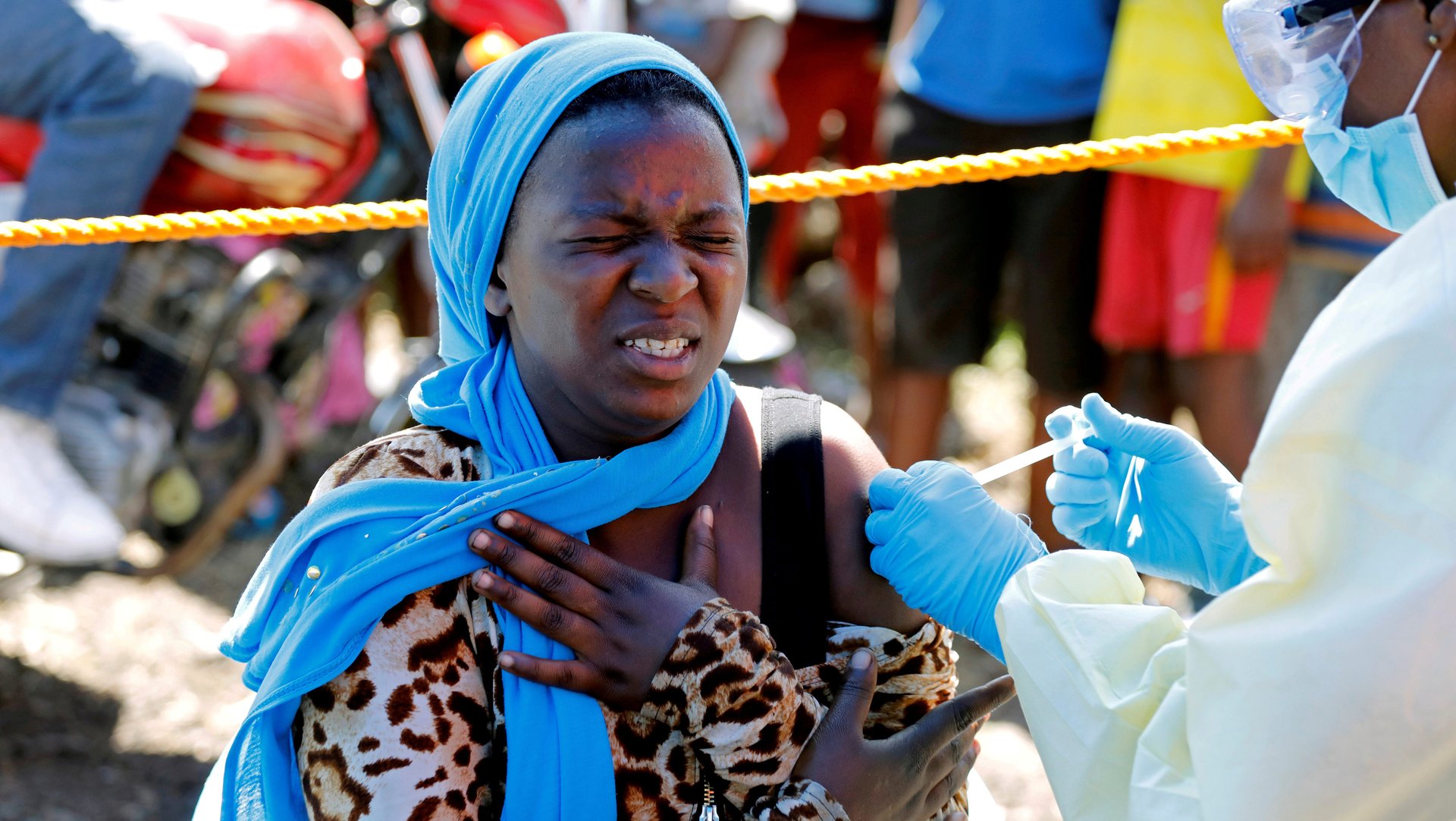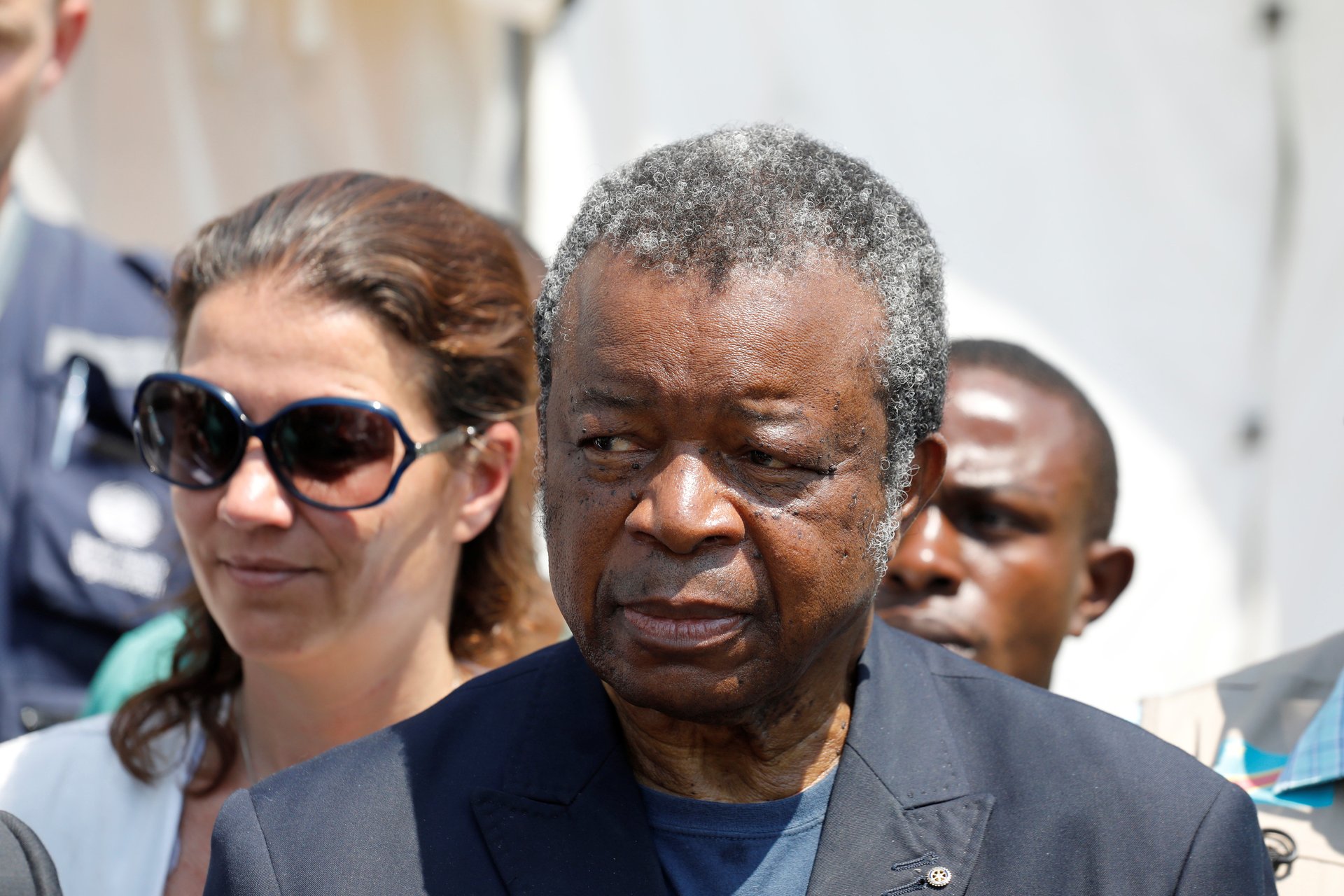We may finally have a way to defeat Ebola
Ebola is no longer an incurable disease after successful trials of two new drug candidates which significantly improved the chances of survival for infected patients.


Ebola is no longer an incurable disease after successful trials of two new drug candidates which significantly improved the chances of survival for infected patients.
The drugs have been rapidly advanced through clinical trials. This has been aided in part because of the ability to test them on patients in the middle of the ongoing Ebola outbreak in eastern DR Congo which was declared an international public health crisis last month. The outbreak has since spread across to a border town in Uganda.
Prof. Jean-Jacques Muyembe, director general of DR Congo’s National Institute for Biomedical Research noted the findings of the study “will help save thousands of lives”. The institute led by Muyembe oversaw the clinical trial which he described as instrumental in redefining of Ebola. “From now on, we will no longer say that Ebola is incurable,” he says.

Pharmaceutical companies say they can make enough doses to treat all patients infected with Ebola while public health experts say the existence of a new drug will help temper public fears of the disease which has negatively impacted efforts to manage outbreaks.
As of Aug. 6, a total of 2,781 cases have been reported, according to WHO. Of the total, 1,866 patients died—an overall case fatality ratio 67%.
The US government’s National Institute of Allergy and Infectious Diseases (NIAID) announced that two out of four candidate Ebola drugs proved effective: an antibody cocktail called REGN-EB3 developed by Regeneron and a monoclonal antibody called mAb114. Both now be offered to all infected patients after recording the lowest mortality rate among patients that were given REGN-EB3 (29%) and mAb114 (34%).
Among individuals that came to the treatment center right after they fell ill, the results were more profound with mortality rates falling to 6% for REGN-EB3.
WHO said the drugs that showed the best results are are “the only drugs that future patients will be treated with”. “We will continue to conduct rigorous research and incorporate findings into the Ebola outbreak response through a variety of prevention and control strategies,” WHO stated.
While the various health policymakers involved in the prevention and control of Ebola have expressed interest in deploying the drugs in combating the disease outbreaks, it is worth noting the findings are yet to be published in scientific journals. NIAID said final analysis of the data has not been done and is expected to be completed in October 2019. The implication of this, according to Fauci, is that the final figures might change.
The current Ebola outbreak is the second largest in history after the West African outbreak which peaked between 2013 to 2014 and claimed more than 11,300 lives in Guinea, Liberia and Sierra Leone.
DR Congo itself has had nine Ebola outbreaks over the last four decades but has often been able to keep the spread of viral disease under relative control. However, this outbreak in the troubled eastern region of the central African country has been aided by the restricted movement of health professionals due to conflict between armed militia, this has also led to a mistrust of health workers by people in the region. This month marks the second anniversary of this outbreak.
Sign up to the Quartz Africa Weekly Brief here for news and analysis on African business, tech and innovation in your inbox